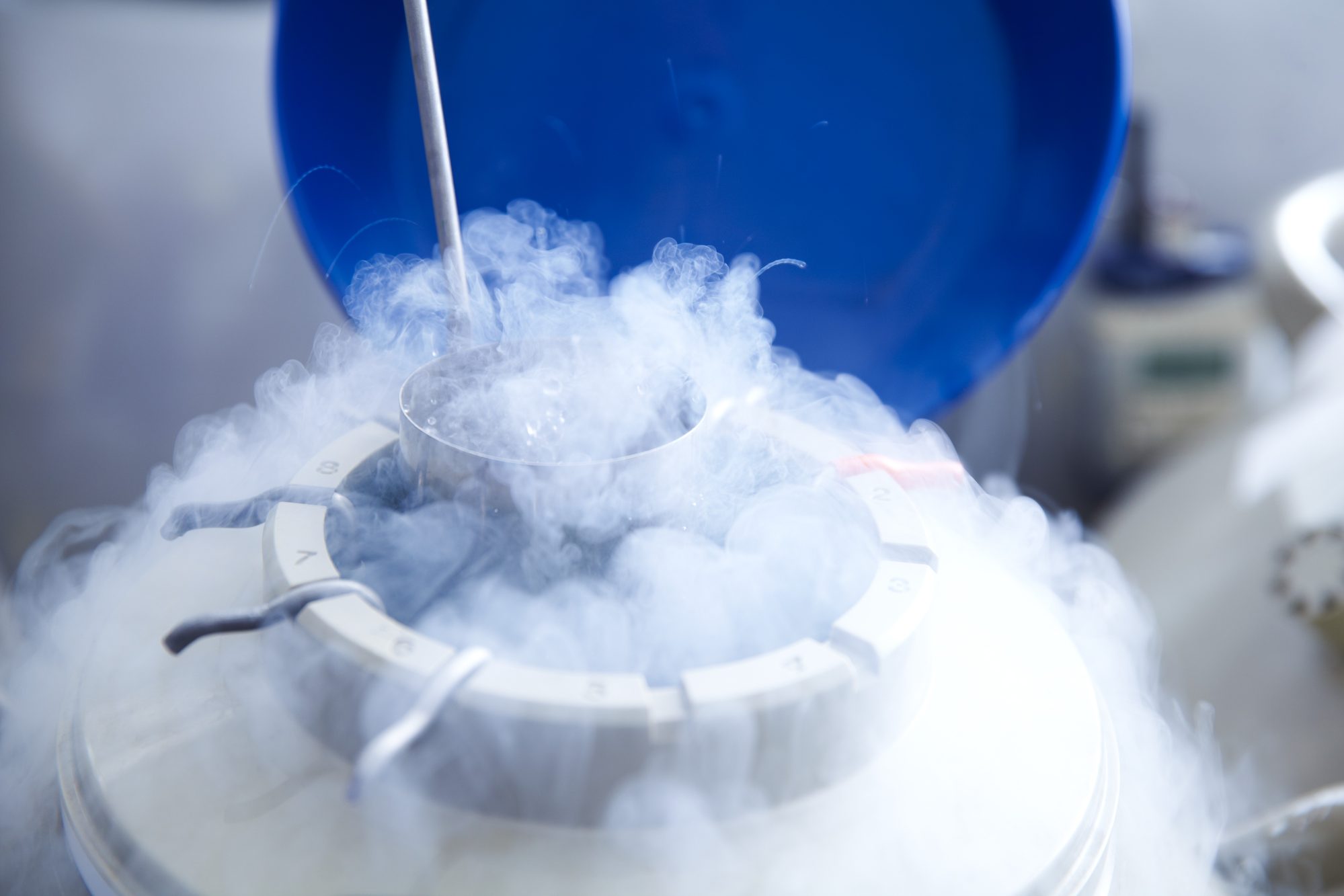
New service allows female cancer patients in Hong Kong to preserve ovarian tissue, giving them hope of having children in future
- Cancer patients in urgent need of treatment do not have time to undergo embryo or egg freezing
- Chinese University team had been assessing feasibility of implementing ovarian tissue cryopreservation in Hong Kong since 2019
Cancer patients in urgent need of treatment cannot afford to undergo embryo or egg freezing which requires time to stimulate the ovaries, while those who are still children have not undergone puberty to produce eggs.
Dr Jacqueline Chung Pui-wah, associate professor of Chinese University’s department of obstetrics and gynaecology, said ovarian tissue cryopreservation was now available at its assisted reproductive technology unit since early June, offering such patients hope.
“Before the patients undergo any kind of chemotherapy or treatment that can affect their reproductive ability, we can carry out surgery to extract ovarian tissue for preservation,” she said.
“If in the future, they wish to have children after their recovery, we can carry out another operation to transplant the tissue on the ovary surface so that they can reproduce again.”
Chung’s team had been assessing the feasibility of implementing ovarian tissue cryopreservation in Hong Kong since 2019.
The researchers collected and froze 52 ovarian tissue samples from 12 patients, aged 29 to 41, which were later transplanted into 34 mice. It was found that most of the tissue remained viable after transplant.
The research findings were published in the Hong Kong Medical Journal in February.

“But freezing embryos and eggs requires time. Ovary stimulation has to be carried out according to the menstruation cycle. Two to three weeks has to be reserved for the procedure,” she said.
“But some female patients have to start their chemotherapy immediately, which will make them unsuitable for the procedure.”
She added that ovary stimulation would also increase hormone levels, which might lead to further growth or spread of the cancer.
Chung said after the ovarian tissue was transplanted back to the patient, the chance of getting pregnant would depend on factors such as the woman’s age, uterus health and the quality of the embryo.
David Chan Yiu-leung, assistant professor in the department, said a technique called slow freezing had been applied to preserve ovarian tissue.
It is different from vitrification, commonly used in sperm, egg and embryo cryopreservation, which requires a faster rate of freezing.
“As ice has a bigger volume than water, what we are most worried about is that ice will form in the cells during the freezing process and may make the cells burst,” he said.
He explained that during slow freezing, water in the cells would be extracted and the tissue would be stored in a minus 200 degrees Celsius (minus 328 degrees Fahrenheit) environment.
“As cells in ovarian tissue are 1,000 times smaller than eggs, we need to apply the slow freezing method so the tissue can be better preserved,” he said.
The researchers said patients aged 35 or under would be eligible for the service and they were looking for subsidies to support their pilot scheme.
She said, based on overseas research, it was possible that the ovarian tissue extracted before the cancer treatment could contain cancerous cells, so pathologists would examine the tissue before transplant.

